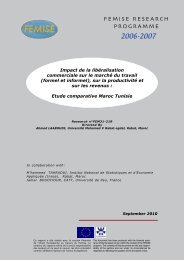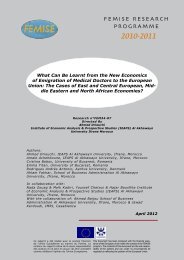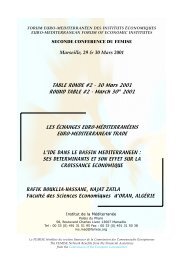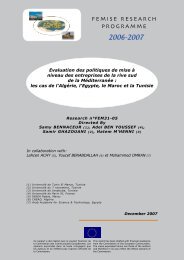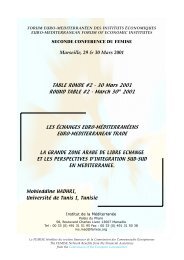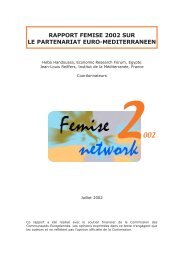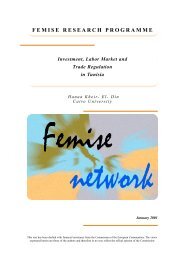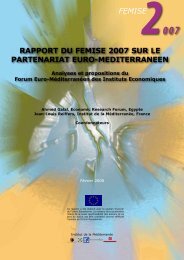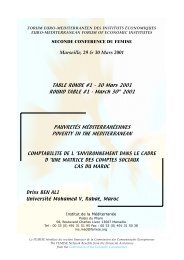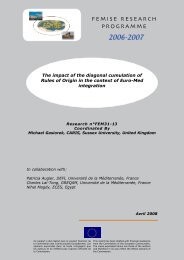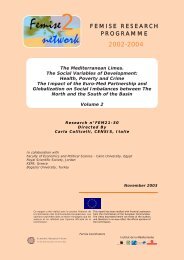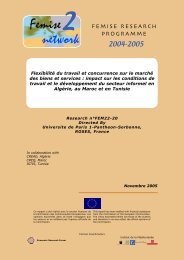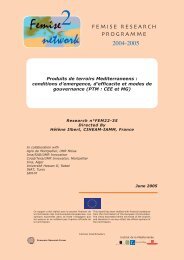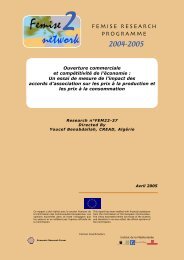PDF, GB, 139 p., 796 Ko - Femise
PDF, GB, 139 p., 796 Ko - Femise
PDF, GB, 139 p., 796 Ko - Femise
Create successful ePaper yourself
Turn your PDF publications into a flip-book with our unique Google optimized e-Paper software.
transition countries. Sekkat and Veganzones-Varoudakis (2004) investigate the FDI in the<br />
MENA region. Their results show that trade and foreign exchange liberalization,<br />
infrastructure availability and sound economic and political conditions (among them lack of<br />
corruption) increase FDI inflows. Business executives interpret corruption as one of the taxes<br />
although one that is particularly burdensome, given the need for concealment and the<br />
uncertainty whether the bribe-taker will actually fulfil his part of the bargain and leave the<br />
company alone. All of that diminishes businesses’ incentive to invest.<br />
Corruption may also divert trade from corrupt countries. The Foreign Corrupt Practices Act of<br />
1977 was principally to prevent corporate bribery of foreign officials by US firms. In an early<br />
investigation Beck, Maher and Tschoegl (1991) found that corruption had a small, but still<br />
significant negative impact on the export competitiveness of the USA. Accordingly, Hines<br />
(1995) shows that because of the Act, growth rates of US aircraft exports are significantly<br />
lower in destinations that are more corrupt. In a cross-country analysis, Lambsdorff (1998)<br />
finds that exporters from less corrupt countries are disadvantaged in corrupt import countries.<br />
Ades and Di Tella (1999) argue that corruption is negatively correlated with competition from<br />
foreign firms. Treisman (2000) also showed that corruption is associated with country’s trade<br />
openness, but could not find convincing instruments to control for reverse causality from<br />
corruption to trade openness. Gatti (2004) suggests that the main impact of trade barriers on<br />
corruption comes through collusion between firms and customs officials. In a much more<br />
recent study Bandyopadhyay and Roy, (2006) show that corruption and lack of contract<br />
enforcement significantly increase trade protection and can have negative impact on trade<br />
openness. This was confirmed for the MENA countries in FEMISE (2006).<br />
108



